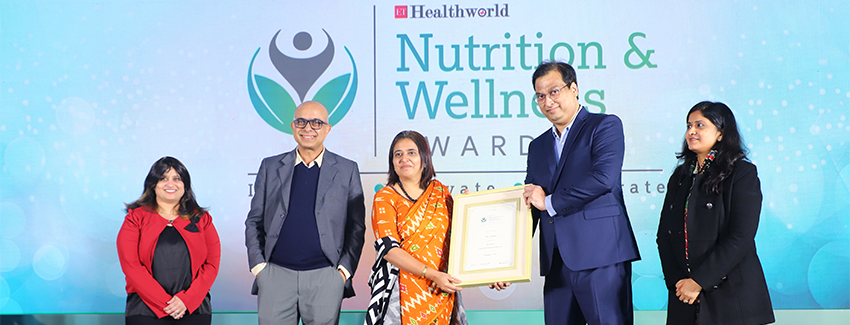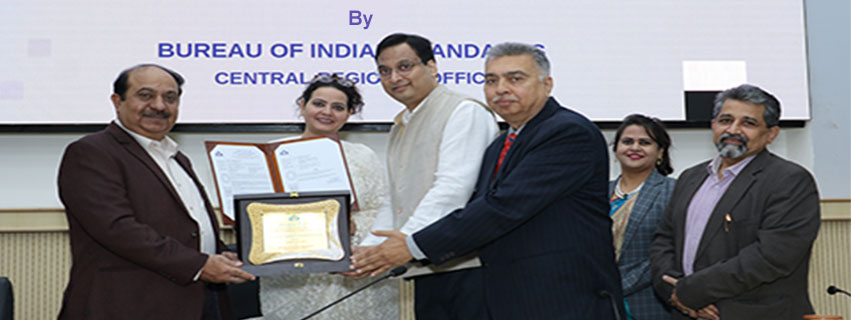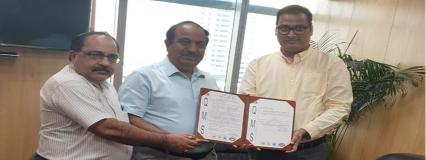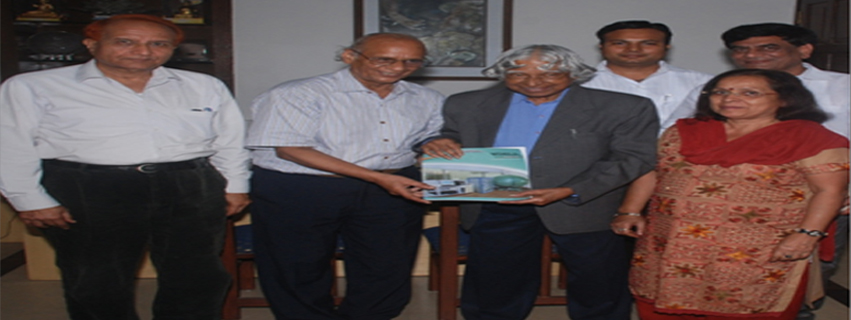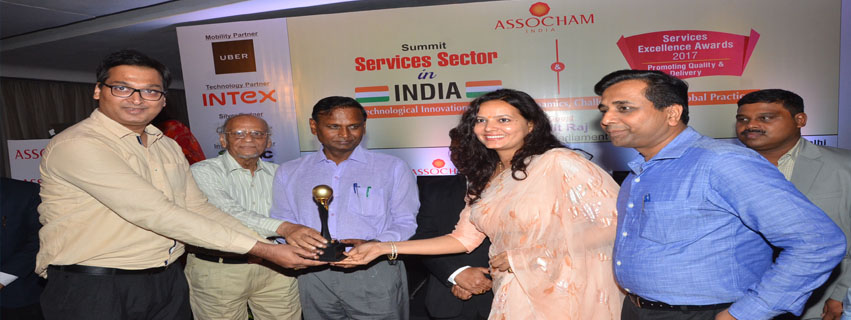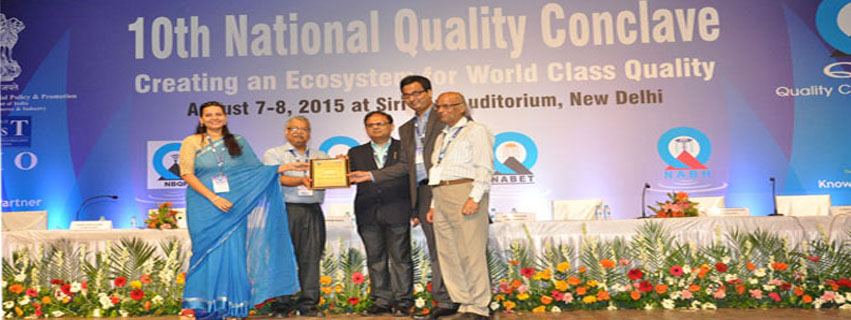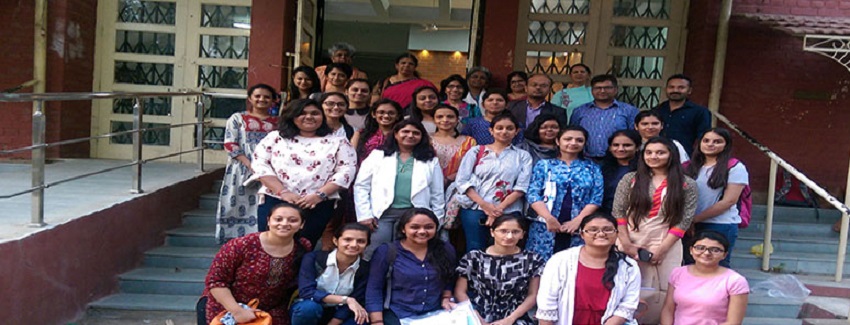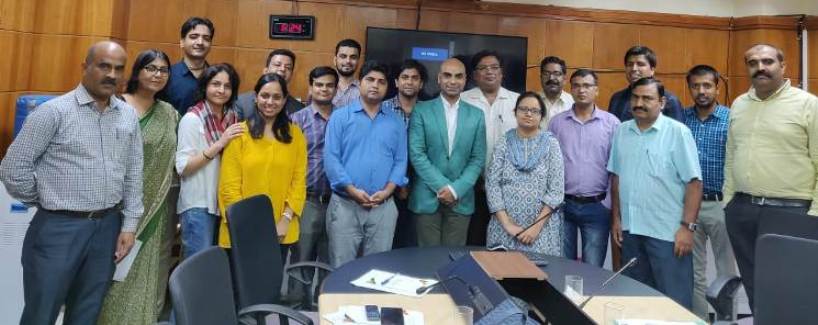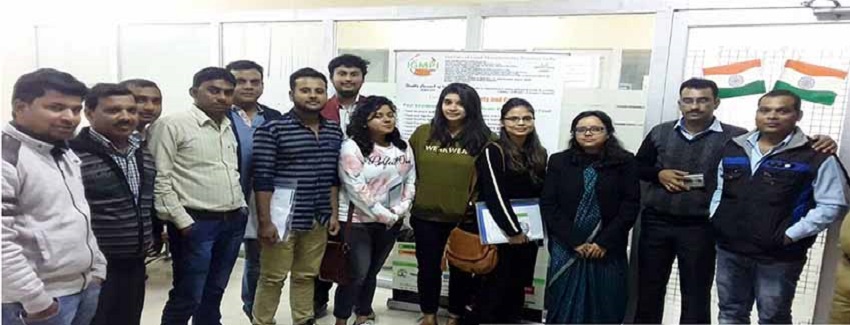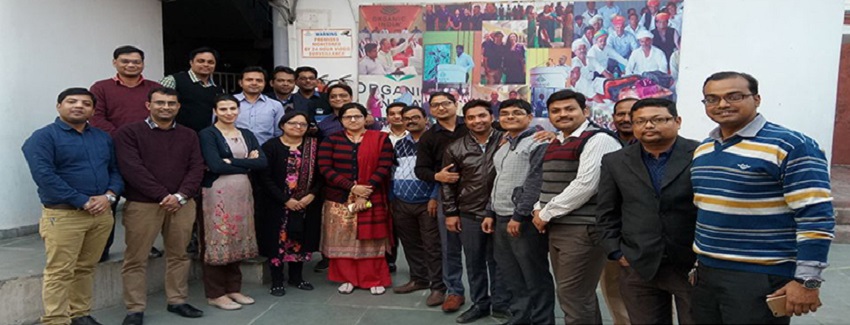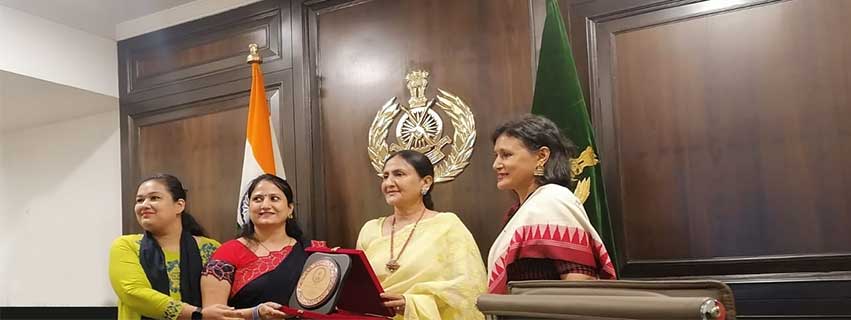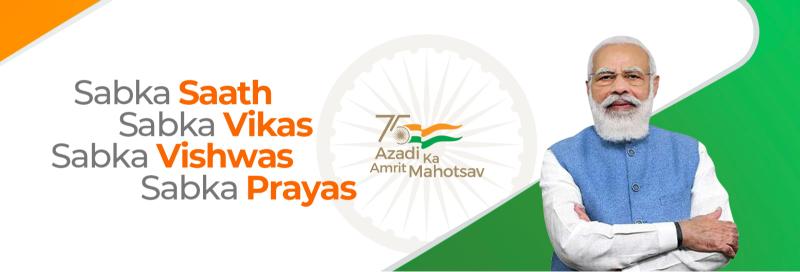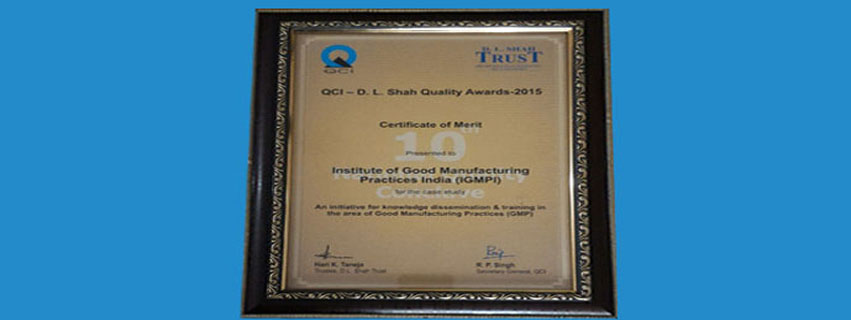(An Autonomous Body Recognized by Ministry of Commerce & Industry, Government of India)
Competency based placement focussed Education | Training | Research | Consultancy
Certificate in Hormonal Disorder: PCOD (CHDPCOD)
With increasing awareness of hormonal health and its impact on women’s well-being, Polycystic Ovarian Disorder (PCOD) has gained significant clinical and public health attention. Understanding its multifactorial nature is essential for developing personalized nutrition, lifestyle, and therapeutic strategies that improve reproductive health, metabolic outcomes, and overall quality of life.
The Centre for Nutrition and Dietetics Studies at IGMPI has developed this certificate programme to provide comprehensive knowledge of PCOD pathophysiology, hormonal regulation, and clinical nutrition management. The programme covers foundational concepts including hormonal mechanisms underlying PCOD, diagnostic approaches, risk factors, therapeutic diets, and the role of nutraceuticals and lifestyle modification in symptom management. This interactive programme emphasizes applied learning through case studies, research insights, and clinical practice guidelines, preparing professionals to deliver effective, holistic management strategies for women with PCOD in clinical, community, and wellness settings.
Programme Structure
International Affiliation with
Module 1: Basic Introduction to PCOD
- Definition and overview
- Difference between PCOD and PCOS
- Epidemiology and regional prevalence
Module 2: Hormonal Imbalance Mechanism
- Role of estrogen, progesterone, and androgens
- Insulin resistance and metabolic syndrome
- Effect on ovulation and fertility
Module 3: Symptoms and Diagnosis
- Irregular cycles, acne, hirsutism, weight gain
- Diagnostic criteria (Rotterdam)
- Ultrasound and hormone assessments
Module 4: Root Causes and Risk Factors
- Genetic predisposition
- Unhealthy diet and inactivity
- Stress and sleep disruption
- Environmental endocrine disruptors
Module 5: Clinical and Natural Management Approaches
- Pharmacological interventions
- Dietary management and supplements
- Holistic and integrative approaches
Module 6: Role of Diet and Lifestyle
- Foods to include and avoid
- Low-GI and anti-inflammatory diets
- Physical activity and stress management
Module 7: Long-Term Complications and Prevention
- Risks of type 2 diabetes, infertility, and CVD
- Importance of early intervention
- Preventive nutrition and monitoring strategies
Module 8: Practitioner Case Studies
Eligibility
Any Diploma holder/ graduation/ B.tech/ B.Sc. in Nutrition/ Home Science/ Microbiology/ Life Sciences/ Botany/ Zoology/ Food Science/ Food Technology/ BE/ B.Pharma/ MBBS/ BDS/ BHMS/ BUMS/ BAMS or any other discipline.
Programme Duration
The duration of the certificate programme is 4 days.
Programme Mode
Registration is currently open for Part-time (Online Live Classes) mode.
Programme Deliverables
-
The training material is appropriately aligned with the current Industry's expectations.
-
Interactive online live sessions on all key areas of the programme giving all flexibility to the participants.
-
Online discussion of the certificate programme topics for ensuring active participation of each attendee.
-
All learning and training delivery initiatives shall be conducted in English.
Assessment & Certification
Online assessment will be conducted at the end of the programme and after successful completion; the participants will be awarded Certificate in Hormonal Disorder (PCOD) by Centre for Nutrition and Dietetics Studies, IGMPI.
Discipline in Classes and Examination
Every student is required to observe a disciplined behaviour during her/his classes, assessments & examinations and to follow instructions from the Professors. Any act of indiscipline may result into discredit & it will be mentioned in her/his academic report.
Future Career Prospects
The Certificate in Hormonal Disorder (PCOD) offered by the Centre for Nutrition and Dietetics Studies (CNDS), IGMPI, equips participants with in-depth understanding of the nutritional, clinical, and lifestyle aspects of managing Polycystic Ovarian Disorder. Career opportunities for certified professionals include roles as Clinical Nutritionists, Women’s Health Consultants, Lifestyle Therapists, Wellness Coaches, Product Development Specialists, and Educators. With the rising prevalence of hormonal imbalances and the growing emphasis on integrative nutrition care, this certification prepares professionals for opportunities across hospitals, fertility centers, wellness clinics, research organizations, and nutrition consultancies dedicated to improving women’s health outcomes.
Programme Fee Details
Programme fee details will appear here.
Last date for submitting completed Application Form: 6th Mar 2026.
For further enquiries, call or write to us on:
18001031071
(Toll Free -9:00 am to 5:30 pm IST-except on Central Government holidays)/
info@igmpi.ac.in
NEWSLETTER
CNDS, IGMPI a part of the Grand Jury for the prestigious Nutriwell Conclave and Healthcare Awards, 2025: Our Director presenting the awards
Other Programmes
- Certificate in Alkaline Diet (CAD)
- Antioxidants and Phytochemicals (CAP)
- Dialysis and Kidney Transplant Diet (CDKTD)
- Dietary Supplements (CDS)
- Entrepreneurship in Nutrition (CEN)
- Food Labelling and Packaging Analysis (CFLPA)
- Intermittent Fasting Diet (CIFD)
- Introduction to Nutrition (CIN)
- Keto Diet and Nutrition (CKDN)
- Nutrient Requirements and Adequacy (CNRA)
- Nutrition for Skin, Hair and Nails (CNSHN)
- Nutrition Survey Methods (CNSM)
- Post-Pregnancy Nutrition (CPPN)
- Sports and Fitness Nutrition For Females (CSFNF)
- Vegan Dietitian (PCVD)
- Weight Management (CWM)
- Role of Insulin & Technology in Diabetes Management (CRITDM)
- Prebiotics and Probiotics in Gut Health (CPPGH)
- Yogic Diet and Nutrition (CYDN)


